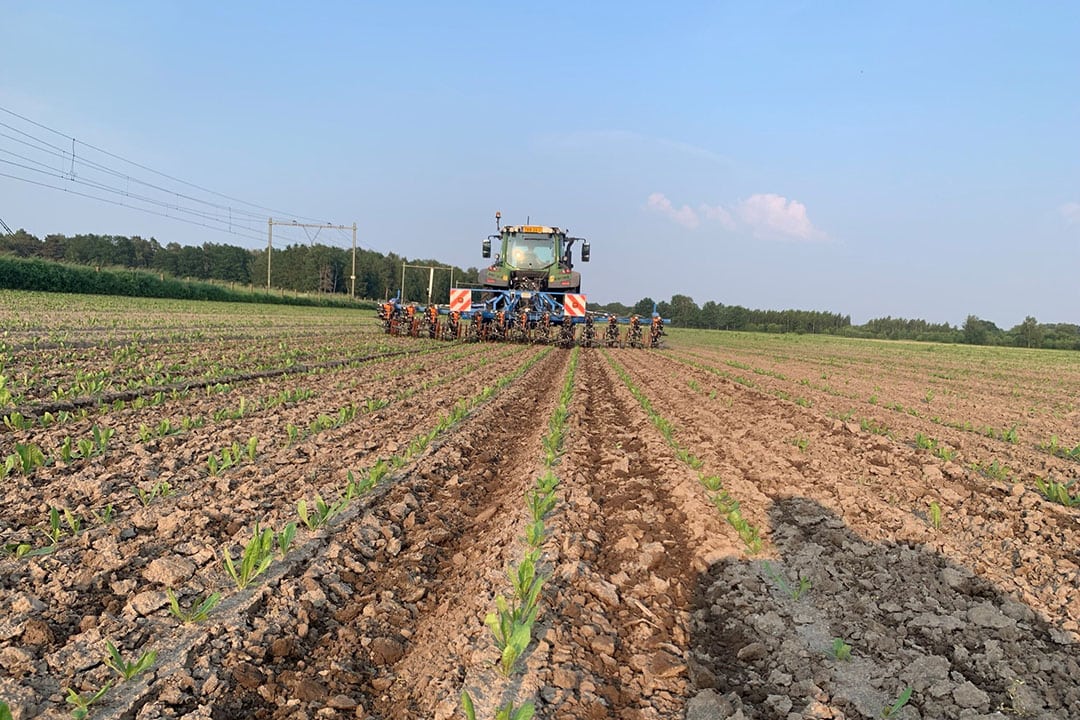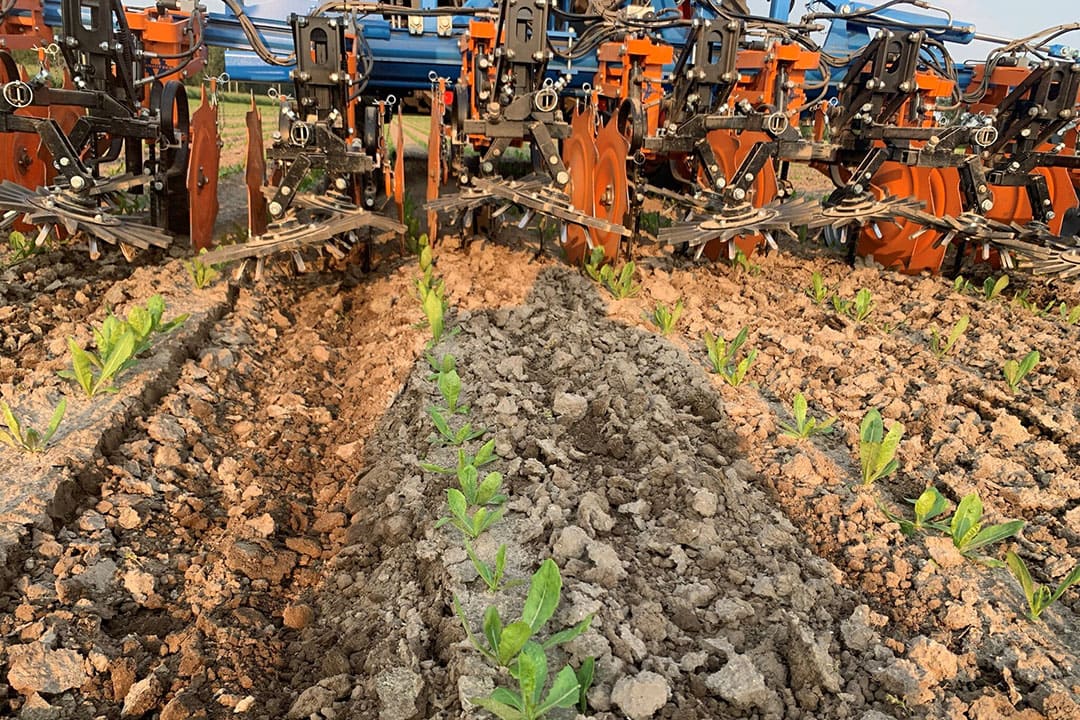How Dutch growers are tackling weeds in sugar beets

Treating weeds with crop protection chemicals is an increasingly challenging task because of the constantly shrinking number of available herbicides. Royal Cosun is helping farmers in finding future-proof integrated solutions.
Royal Cosun is a large international cooperative with Dutch roots focussing on among others processing crops like potatoes (Aviko), chicory (Sensus) and sugar beets (Cosun Beet Company). The company anticipates that the steadily decreasing ‘basket’ of available (allowed) chemical products will be thé main challenge growers of chicory and sugar beet will be facing in the coming years.
Alternative weeding methods
To advise and assist farmers in making the right choices and for future proof cultivation, Cosun initiated its Groeikracht (growing power) platform to research and trial alternative weeding methods but also the availability of water and biodiversity. “We can turn the tide by collaborating throughout the chain. Together we can guarantee future-proof, sustainable and profitable crops and sustainable arable farming. Groeikracht combines the strengths of potato, sugar beet and chicory growers with Cosun’s strengths”, says Gert Sikken, Director Agro Development at Cosun.
Text continues below image

Subsidise machinery investments
René Schunselaar, Agro Manager at Sensus: “Apart from the shrinking number of available herbicides, research also shows that herbicide usage puts pressure on the yield potential of chicory. By replacing herbicides by mechanical weed management, yields can go up by 8 to 10 percent. We see however that most farmers who visit our demo fields and demonstrations, hop onto their sprayer again the next day. Because spraying is affordable, proven and easy. Groeikracht therefor also aims to achieve a mindset change with and for growers.”
Mechanical weed management is an important aspect of the platform that is currently researched and trialled in two projects: 1) implementation of existing machinery and 2) future-proof weed management. The first project also included subsidising investments in tine weeders, precision (camera) hoes and the rather new German Klünder Weedpuller.
The subsidy helped purchasing 18 machines during the past winter, mostly camera assisted hoes. “Non organic growers somehow consider tine weeders still as somewhat scary while hoes are familiar tools known from the past”, notes Sikken. Groeikracht also bought two Klünder machines that are available to participating growers. The project is to be continued this year, which means that growers can apply for investment grants again. Groeikracht also plans to buy two more Klünder Weedpullers and to station them elsewhere in The Netherlands so more growers can use them.
Text continues below image

Future-proof weed management platform
In the far south of the Netherlands, Groeikracht last year installed a future-proof weed management platform with 25 hectares of chicory and sugar beet crops in cooperation with a local contractor. Sikken explains that this platform is set up like a field lab where several machines are trialled and demonstrated to interested farmers and contractors. Future Farming
visited these trial grounds last year to see several machines in action including the latest Garford Robocrop Spot Sprayer. “Organising field days still was a challenge last year because of the restrictions related to Covid-19”, says Gert Sikken.
Sikken emphasises that the platform intends to achieve more than (just) replacing two spray rounds by hoeing: “What we really want is a system change. A change that is possible today, tomorrow and not in several years from now. Because a solution for the day after tomorrow is of no use if we can no longer grow chicory and sugar beets tomorrow.”
The 25-ha plot is divided into several fields/objects of 1 ha each. On one demo field, weeds are managed the common way according to common practices. On eight other demo fields, weeds are managed by a combination of chemical and mechanical measurements, and the last demo field is subject to hoeing only. The machines used include two tine weeders, six different (camera) hoes and two weeding robots including a FarmDroid FD20 (see box).
Schunselaar mentions that mechanical weeding leads to good results in general. Weeds were also managed by using propane heat treatment and spot spraying technology. Band spraying in combination with hoeing led to a 50% reduction in chemical usage compared to blanket spraying.
Timing seems to be essential
For successful tine weeding, timing seems to be essential, the project learned. “It should be done by the grower himself rather than by a contractor because the right timing is a matter of hours, not of days. For hoeing, the right timing is less essential”, concludes Sikken. For this year, more demo fields will be set up in different regions of The Netherlands.
Co-author: René Koerhuis
Join 17,000+ subscribers
Subscribe to our newsletter to stay updated about all the need-to-know content in the agricultural sector, two times a week.



